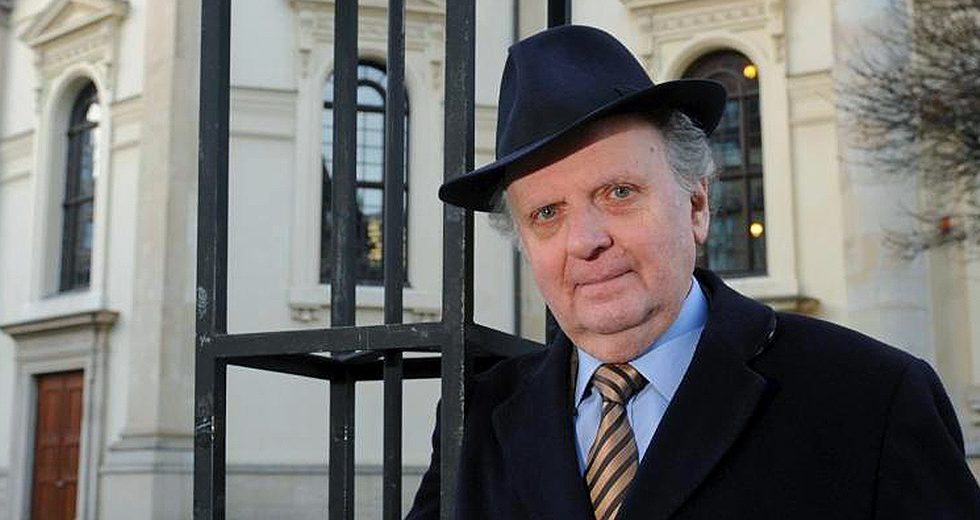
Marek Janowski never set out to be known as a Wagnerian specialist, but it has certainly worked out that way. The Polish-born German conductor led performances of the composer’s massive cycle of four operas, Der Ring des Nibelungen, at the Bayreuth Festival in 2016 and 2017 and across four seasons recently with the NHK Symphony Orchestra in Tokyo.
While serving as artistic director of the Berlin Radio Symphony Orchestra, he conducted concert performances of not just the Ring cycle but all 10 of Wagner’s major operas in 2012 and 2013 — a project that was recorded live on the Pentatone label and released in various formats, including a complete box set in 2014.
“The music of the Ring has a little bit stuck to me by incident throughout the years,” Janowski said. “Of course, I think I’m a quite experienced Wagner conductor. But it’s not in a way that I would say that Wagner is the center of my music life or Wagner is the greatest of all. It just happened to be this often, and of course, I always enjoy conducting the music of Wagner, not only the Ring cycle but Tannhäuser or Tristan or Parsifal, whatever.”
Area audiences will have a chance to experience Janowski’s affinity for Wagner when the 79-year-old maestro makes his downtown conducting debut May 31 and June 1-3 on the Chicago Symphony Orchestra’s subscription series. In addition to works by Weber and Beethoven, the program will consist of orchestral excerpts from two of Wagner’s operas, the Overture and Venusberg Music from Tannhäuser and Preludes to Act 1 and 3 from Die Meistersinger von Nürnberg.
Janowski has long put an emphasis on the music Germany and Austria, but it was his 1980-83 recording of the Ring cycle with the Staatskapelle Dresden that caught the attention of the opera world and permanently associated him with Wagner. He has regularly conducted the composer’s music since.
No undertaking has been more ambitious than his decision to present concert performances of all Wagner’s mature operas across two seasons with the Berlin Radio Symphony. It also was a daring venture, considering that Berlin has three major opera houses, and Wagner is no stranger to their stages. “That turned out to be a big success,” Janowski said, “because many Berlin operagoers are not so pleased with the development of German stage direction during the last 20 years.” He was referring to sometimes controversial stagings that shift settings and time periods in ways that some believe detract from and even undermine the operas.
In 2013, New Yorker magazine music critic Alex Ross included Janowski’s recording of Tristan und Isolde from this set among his favorite Wagner recordings of all time. “I append this last as evidence,” he wrote, “that first-rate Wagner recordings are not extinct, although they are undeniably fewer and farther between than in the 1950s and ‘60s.” In addition, a BBC Music Magazine reviewer had high praise for Pentatone’s 2016 release of the Ring cycle from among these recordings, writing, “The real stars of this Ring are the Berlin Radio Symphony Orchestra and Choir, the conductor and the recording team … this is the sound of a Ring for the 21st century.”
Janowski had long been asked to conduct at the Bayreuth Festival, which Wagner founded as a showcase for his operas. After turning down those invitations, the conductor agreed to lead what he called a “very complicated and very controversially received” staging of the Ring cycle in 2016 and 2017. “It was a quite interesting experience,” he said, noting the challenge of performing in the festival theater’s orchestra pit, which is recessed and covered with a hood.
He started his conducting career in what he called the “old-fashioned German way” of serving as an operatic assistant conductor and vocal coach, and later becoming a music director in the opera houses of Freiburg and Dortmund. “So I come from this side of conducting,” he said of the opera world. But Janowski stopped leading full-fledged operatic productions 18 or 20 years ago, because he disagrees with the path that opera-stage direction has taken. “The two summer seasons in Bayreuth were the only exceptions,” he said. “The rest is from time to time doing an opera performance in concert version, and that’s it.”